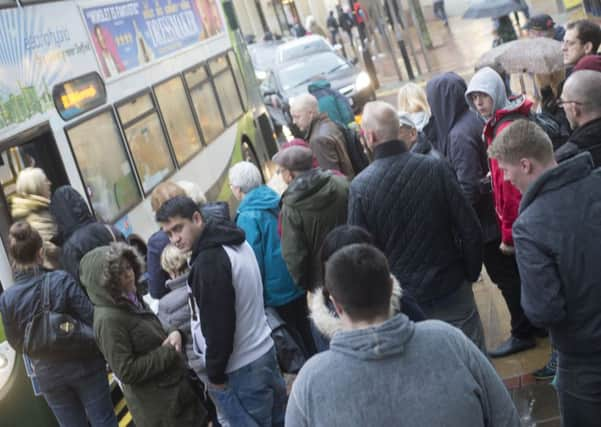Michael Dugher: Passenger power over profit is the route for buses


Suffice to say, their plans include yet more cuts. Although I ensured that as many local residents as possible made their views known, once again there seems little we can actually do about it.
The prospect of yet more cuts to bus services has left people who rely on them understandably worried and angry. Local buses are a lifeline for thousands across the county who rely on them to get to work or college, go shopping, or visit friends and family.
Advertisement
Hide AdAdvertisement
Hide AdBut these latest changes, set to be introduced by SYPTE in January next year, mean that in my Barnsley East constituency the 8 and 8a service through Worsbrough would be scrapped, with just a partial replacement. The 37 bus through Cudworth, Shafton and Grimethorpe will be cancelled on Saturdays. In other parts of the borough, the 23a, 24, 25 and 300 bus services serving Penistone could also face the axe.
These cuts come on top of the recent collapse of Tates Travel bus company which abruptly folded in February, leaving many passengers in Barnsley and Rotherham in the lurch.
And according to the Campaign for Better Transport, there was a cut of almost 10 per cent in the amount South Yorkshire spent on supported bus services in the year to April 2016. Across Yorkshire and the Humber, the amount spent on supporting local bus services had dropped from £46.9m in 2010/11 to £32.6m in 2015/16 – a drop of 30 per cent.
Nationally, more than 2,400 services have been withdrawn or reduced under this Government, while bus fares have shot up 61 per cent on average in the past decade. Unsurprisingly, passenger numbers have slumped as Government support to subsidise bus services in England and Wales fell in real terms by 17 per cent over the last three years.
Advertisement
Hide AdAdvertisement
Hide AdAll this makes it harder for people to get to work or find employment. It makes it more difficult for people to stay in touch with friends and family, increasing the sense of loneliness and isolation some people feel, particularly elderly people or those living in more rural areas. And it hits local businesses too as trade suffers.
But the latest cuts in bus services in Yorkshire does highlight once again the real need for changes.
Last year, when I was Labour’s Shadow Transport Secretary, I led a “Passenger Power” campaign to give people a far greater influence on the services they use and help to fund. At the moment, bodies like SYPTE can run public consultations.
But, despite all the public money that goes into funding our bus services, the bus market remains “deregulated”. There is nothing that compels them or the private bus companies to respond to the wishes of the public.
Advertisement
Hide AdAdvertisement
Hide AdThe Competition Commission has estimated that failures in the bus market are costing taxpayers up to £305m every year. That’s why I argued that we needed to give combined local authorities the powers to set routes and fares to deliver better bus services.
A model for this exists. In London, the bus market is “regulated” in this way. In London, bus passengers pay £1.50 per trip and there is a daily cap of £4.50 for a limitless number of bus journeys. Payment is on an Oyster card or a contactless payment card, like a debit or credit card, to help cuts queues and help speed up journeys.
I’m not against bus companies turning a profit. But at the moment the incentive is for them to run services on the profitable routes, like the buses packed with shoppers heading to places like Meadowhall, but to run down the bus routes that make little or no money – like vital buses picking up old folk from sheltered accommodation or trips to the local hospital.
I’ve argued that we should be “cross-subsidising” whereby the profitable routes help keep alive the other routes that are essential in terms of providing a much-needed public service.
Advertisement
Hide AdAdvertisement
Hide AdBut it’s not just about keeping fares reasonable or protecting important local bus routes. It’s about having a transport system as a whole that is properly joined up. For instance, there should be more powers to ensure bus and rail timetables are integrated.
Thankfully, the Government has finally responded to some extent to the campaign for more passenger power. If the new Sheffield City Region gets underway, the directly-elected mayor will have the power to award bus franchises and help facilitate smart ticketing.
But the question is: do these new powers go far enough? The test will be whether or not these new powers actually deliver the changes bus users need. And that means reversing the recent trend of cuts to routes and fare rises.
Michael Dugher MP is Labour MP for Barnsley East.